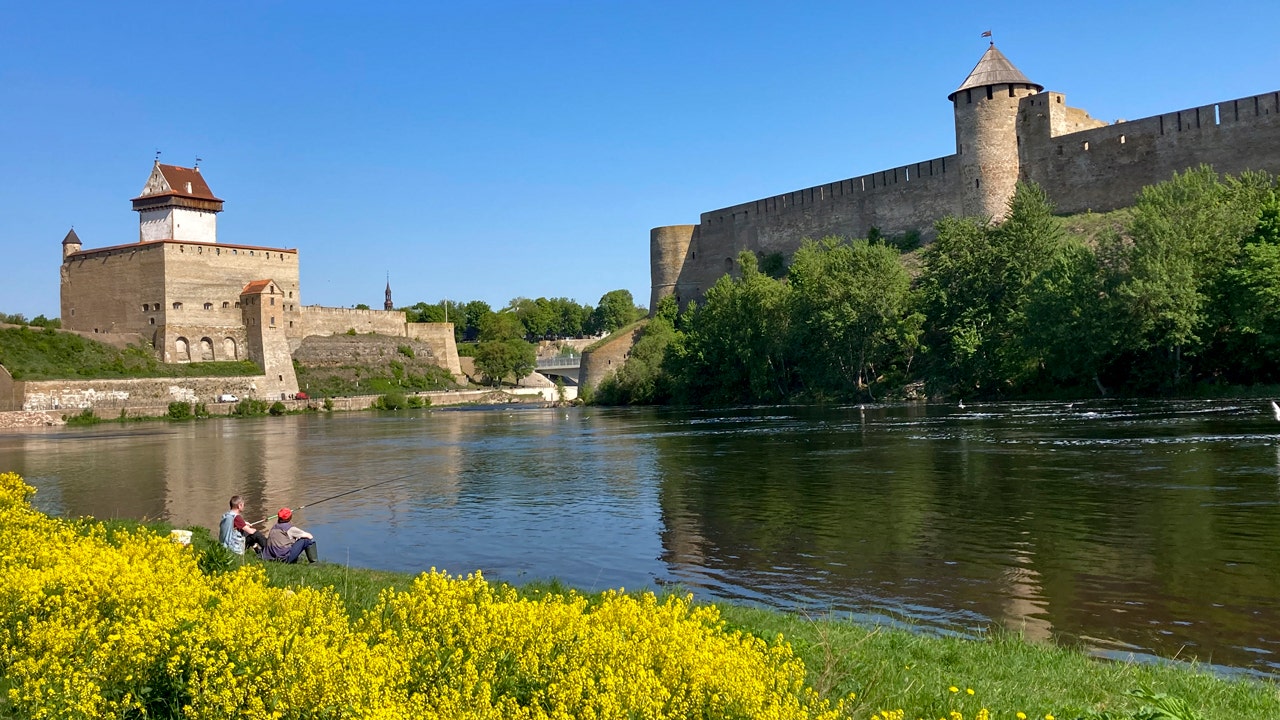Chances are, the truth will not feature much in the coverage. It will not be a central point in the buildup. The commentators may mention it in passing, but their tone will indicate that the hyperbole is not to be punctured. And if Pep Guardiola and Mikel Arteta try to point it out before Manchester City faces Arsenal on Sunday, it will be viewed as gamesmanship, or deflection, or unapologetic sophistry.
Still, it is true: The meeting between City and Arsenal will not provide the deciding, defining moment in the Premier League’s most compelling title race in a decade. It is a game of glowering significance and considerable heft, of course, a chance for one team to clear a towering, looming hurdle. But it is no conclusion.
The mathematics, the raw facts and figures, bear that out. By the end of the weekend, a maximum of four points will separate the teams: a meaningful gap, no doubt, but not an insurmountable lead. There is a better than even chance that by the time the whistle is blown at the Etihad Stadium on Sunday night, neither of them will be top of the league.
It works for everyone to pretend otherwise, of course, to present this as some sort of climactic showdown. That is not just because soccer, as we have long established, is now merely an arm of the entertainment industry and there is better content in the crashing crescendo of a title fight than in the staccato, discordant rhythm of the season. It is also because one of soccer’s great myths is that champions are anointed in direct collision.
That is not, of course, quite how it works. A championship is a reward for enduring the slow grind of an arduous campaign better than all of your rivals. Being able to overcome the most imposing of them on any given day is a related skill, but the correlation is hardly perfect. Arsenal might win at City and still not win the league, or vice versa. (Liverpool, the third contender, has beaten neither club this season.) There is more than one way to be the “best” team in a league.
Instead, it’s likely that the defining date in the Premier League season is one that has not been scheduled, deliberately, to suit the narrative demands of television. Perhaps it will be the day Liverpool goes to Fulham, or Aston Villa visits City, or Arsenal travels to Manchester United.
Perhaps there will be more than one. Perhaps it has already passed: When West Ham won at Arsenal, or when Liverpool mustered several thousand shots at home to Manchester United and scored on none of them, or when City scored only twice against Sheffield United. Not all turning points, after all, are signposted.
And while the long game may not play as well on television, there is something fitting in that. Regardless of which team emerges victorious at the end of May, the two to fall short will be subject to the cruelest form of autopsy, a sustained and gleeful search for whatever shortcomings can be found.
Manchester City might be accused of not being able to sustain the glorious standards it set last season. Arsenal might be informed that things could have ended differently had Arteta spent a trifling $120 million on a striker in January. Liverpool may be instructed to rue the profligacy of Darwin Nuñez or, because in these situations people like to play the hits, no matter how little sense they make, the blame will be laid at the door of Trent Alexander-Arnold’s defending.
This exercise is traditional, cathartic and deeply flawed. It should not need to be said, of course, that the most common reason a team does not win the league is that there is a better one — more complete, more fluid, less hamstrung by injury, a touch more fortunate — just ahead of it.
To scrutinize where everyone else went wrong is to fall, willingly, into what might be thought of as the fans’ fallacy: the assumption that only one team has agency, that its fate is defined by its own strengths and weaknesses and nothing else, that no external factors are at play.
This season, though, it is the external factors that have carried the greatest weight — not simply the injury crises that have hobbled Liverpool and City, in particular and in that order, at various times, but in the challenge posed by the rest of the league.
The Premier League is, as it has been telling us for some time, both the richest domestic league on the planet and the best. The former has been true for the better part of two decades. It has taken rather longer to manifest the latter.
Now, though, it is indisputable: England does not just have the finest set of elite teams on the planet, but it also has the strongest set of middleweights. Even the teams at the foot of the table, the ones who have spent the last nine months being castigated and chastised for their every move, are most likely far stronger than their counterparts in Italy, Spain, Germany and France.
The most obvious riposte to that is: They should be, given how much they spend on salaries. But only now is that advantage starting to become clear.
It runs far deeper than the fact that an English team has featured in all but one of the Champions League finals since 2017, or that there is a good chance of an English clean sweep in European competitions this season.
It is evident, instead, in a Brazil lineup at Wembley last week that featured a midfield drawn from Wolves, Newcastle and West Ham; in one of the favorites to be the next manager of Bayern Munich leading the team that is currently eighth in the English table; in a Chelsea team that cost $1 billion to assemble now languishing in 11th.
Even the fact that Burnley and Sheffield United have struggled so forlornly after winning promotion is telling: The Premier League does not really have a weak link. It does not seem so, as the season lurches from one appointed crisis club to another, but this may well be the strongest iteration of the competition in its history.
That is worth remembering when the decisive day comes, whether it is at Craven Cottage or the City Ground or Old Trafford. It will be tempting to assume that whichever team drops first does so because it is, in some neatly comprehensible way, lacking.
The reality will be different: less satisfying, perhaps, and not as easily distilled into pat analysis or simple explanation, but more whole. Two among Liverpool, Arsenal and Manchester City will miss out on the Premier League title because they lose, or draw, or do not score enough against another extremely rich, lavishly talented soccer team. In doing so, they will prove that they are not the best, of course. But that does not mean that they are not very good indeed.
Tournaments Are Not Just About You
We may as well cycle through all of the criticism of the European Championship now, just to get it out of the way: Yes, the tournament is too large now that it contains 24 teams. Yes, many of the games lack any real sense of jeopardy, seeing as 16 of the teams will make it to the knockout rounds anyway. And no, nobody is excited in the slightest by Group C. Or Group E.
While there is no real doubt that the competition’s previous 16-team format, the one abolished out of political necessity in 2012, was far superior, it is difficult to deny that expansion has had its benefits. The presence of Georgia alone, in fact, provides a compelling case in its favor.
Georgia has, largely unsurprisingly, never been to a major tournament. It won its place in Germany this summer with a nerve-shredding, penalty-shootout win against Greece on Tuesday. The celebrations that followed in Tbilisi, Georgia’s capital, bordered on delirium, the sort of genuine outpouring of uncontrolled emotion that some of Europe’s major nations would struggle to generate even if they won the tournament.
If the European Championship was still running on its more exclusive basis, none of that would have happened. Soccer has been contorted more than enough to suit the demands of the powerhouses. That they should have to sit through a handful of schedule-filling games so the supporting cast can have days like that seems a more-than-fair price to pay.
Impossible Light
By now, it has become a well-worn observation that every image of Endrick — the 17-year-old Brazilian phenomenon — has a purposely iconic sheen. Here he is, staring into the distance, his eyes full of burning ambition. Here, he has been hoisted by his teammates, an apparently impromptu recreation of the famous photo of Pelé in 1958.
There are many questions about all of this. Are Brazilian photographers using a special filter? How, exactly, can someone born in 2006 look so much like he is from the 1950s? Is he doing it on purpose? Has he actually been generated by some sort of artificial intelligence being operated out of a basement at FIFA’s headquarters in Zurich, a desperate attempt to make up for the looming retirements of Lionel Messi and Cristiano Ronaldo?
This week, and Endrick’s winning goal against England at Wembley, brought two more queries. The first and most immediate is whether Real Madrid really needs to pay Kylian Mbappé as much as it plans to pay him if it already has Endrick on its books?
The second, rather larger question is what sort of a star he is going to be: a merely luminous one, or one so big that he can exert his own gravity on the game itself, dragging others into his orbit and turning Real Madrid — instead of the Premier League — into soccer’s center once again?






